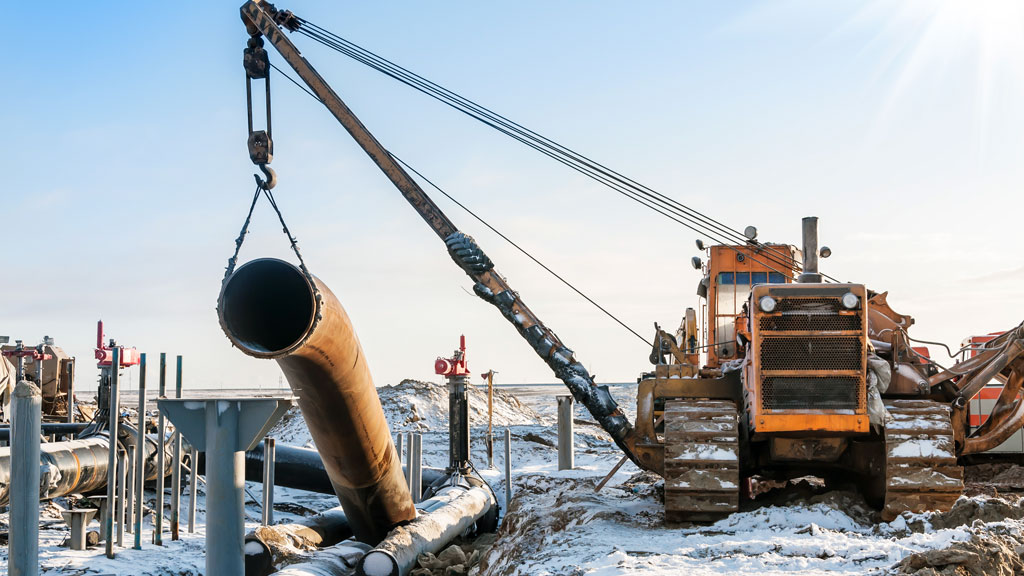Pipelines transporting oil and natural gas are a controversial and even divisive subject in Canada, but a Montreal economist says this country should be building more of them in order to tap growing energy markets overseas and to transport western oil to refineries in the Maritimes for domestic consumption.
Miguel Ouellette, director of operations at the Montreal Economic Institute, says revoking the permit of the Keystone XL pipeline between Alberta and the U.S. by President Joe Biden on his first day in office shows the risk to Canada of depending on a single country for its petroleum exports.
“The cancellation of Keystone XL is costing Canada a lot of money,” says Ouellette. “We’re losing $50 million per day in foregone revenues. We can’t keep having our pipelines cancelled.”
Given the positions Biden staked out during his election campaign, Canada can expect this decision to be followed by similar ones, he says.
“Some 98 per cent of Canada’s oil exports go to our southern neighbours,” says Ouellette. “Putting all of our eggs in the same basket is a risky strategy.”
Oullette is sounding the alarm because the oil and gas industry is critical to Canada’s economic prosperity and overall well-being.
For one thing, it puts a lot of money into government coffers that goes toward paying for the various social programs and entitlements that Canadians love.
“Over the past five years, the federal government collected an average of $14 billion a year from the oil and gas industry,” says Ouellette. “That tax revenue is more than one-half the total of all provincial deficits during the COVID-19 pandemic.”
In addition to contributing to government revenues, the oil and gas industry directly or indirectly employs over 830,000 workers, and accounts for around one dollar in 10 of our gross domestic product.
The money it generates has enabled Canadian oil and gas companies to invest heavily in research and development, with the result that, between 2000 and 2018 greenhouse gas (GHG) emissions per barrel of oil from the oilsands fell by 36 per cent.
In addition, Ouellette says, pipelines are the safest and most environmentally friendly way for Canada to transport fuel.
The Canada Energy Regulator regulates pipelines throughout their life cycle, from design to evaluating approval requests, to construction and use, and through to abandonment.
According to the Pipeline Safety Act, polluters are held financially responsible for any costs and damages they cause to the environment.
In addition, companies in violation of the law are subject to fines of up to a million dollars and penalties including imprisonment of from one to five years.
These regulations have motivated pipeline companies to introduce their own safety measures.
Pipelines are now monitored at all times from centralized control centres that gather pressure, volume and other information in real time.
Thanks to this multiplicity of controls, pipeline spills, leaks and ruptures are now extremely rare.
Almost all of Canada’s oil goes to the U.S., where it is sold at a discount.
“The different levels of government should make it easier to build new pipelines in Canada in order to put in place the infrastructure required to diversify our oil exports,” Ouellette says.
Several world markets are expected to experience substantial growth in demand for oil by 2045.
“Demand will surge by 130 per cent in India and by more than 40 per cent in a number of other Asian countries,” he says. “This is a golden opportunity for Canada not only to increase the value of its exports, but also to change its risky, one-client strategy.”
Ouellette says Canada should reconsider two key aspects of its pipeline strategy.
The first is to encourage the construction of new pipelines from Alberta to west coast tidewater. That would enable Canada to increase its exports to new markets in Asia and diversify its client mix.
The second is to promote projects that move oil from west to east for domestic consumption.
“Right now, the main pipeline infrastructure ends in Montreal, which means refineries in the Maritimes have to import much of their oil from Saudi Arabia,” says Ouellette. “With an extension of the pipeline, the Maritimes would consume more Canadian oil and contribute to the growth of our energy sector.”
The figurative icing on the cake for this revised strategy is that new pipelines would also be able to transport natural gas and hydrogen.











Recent Comments